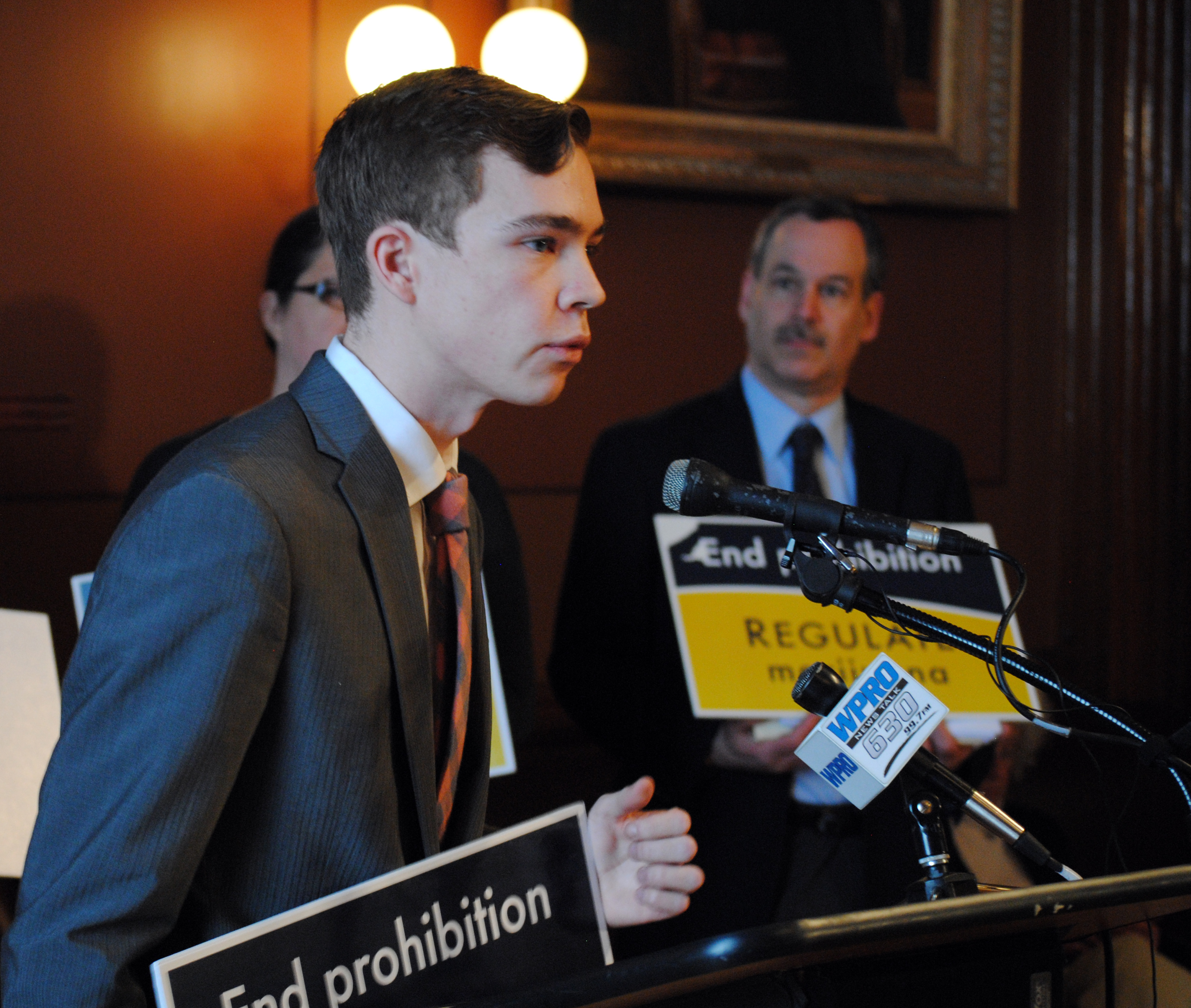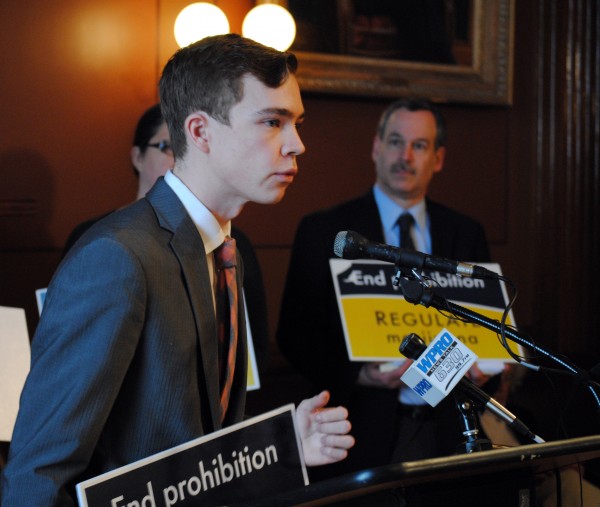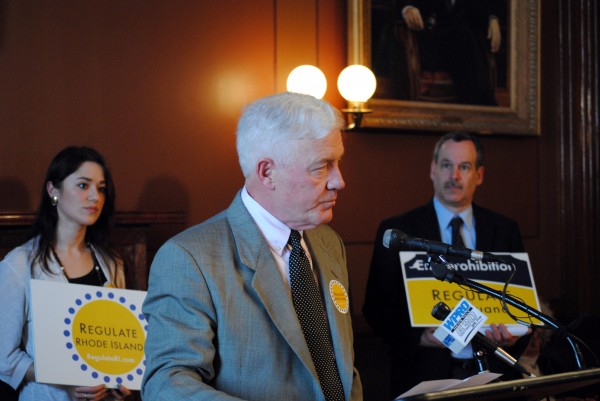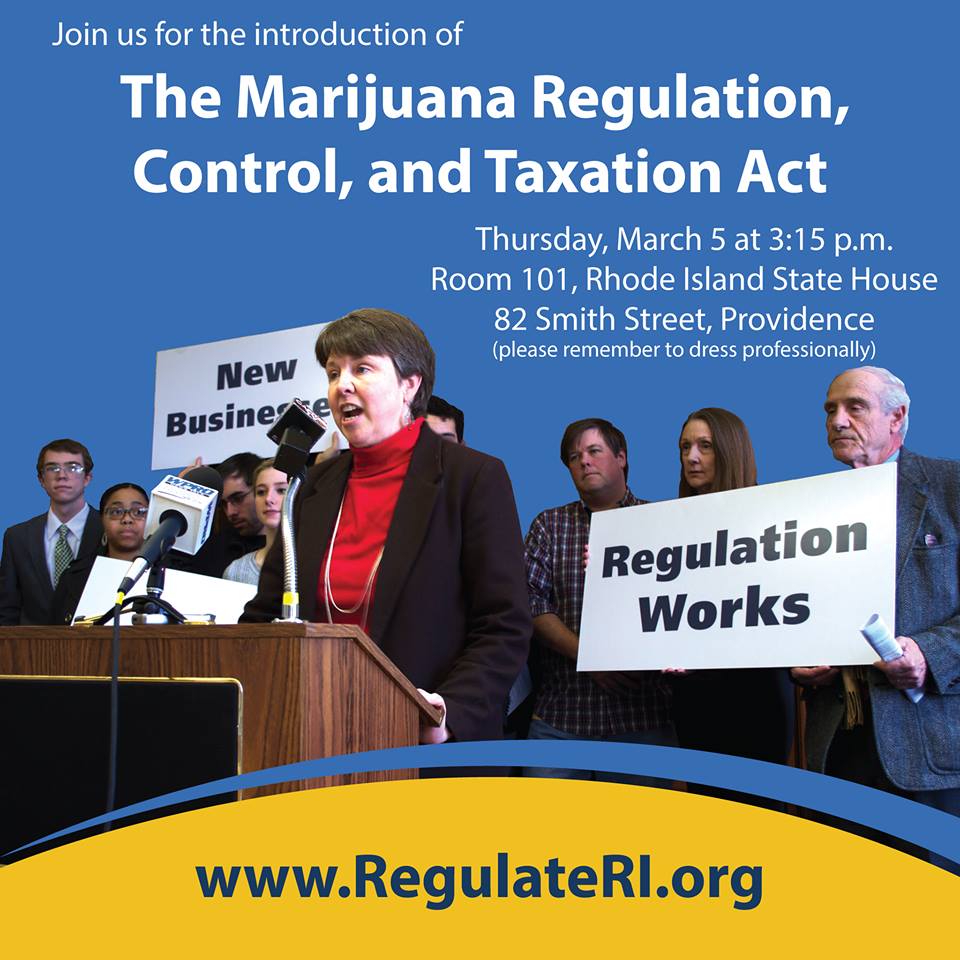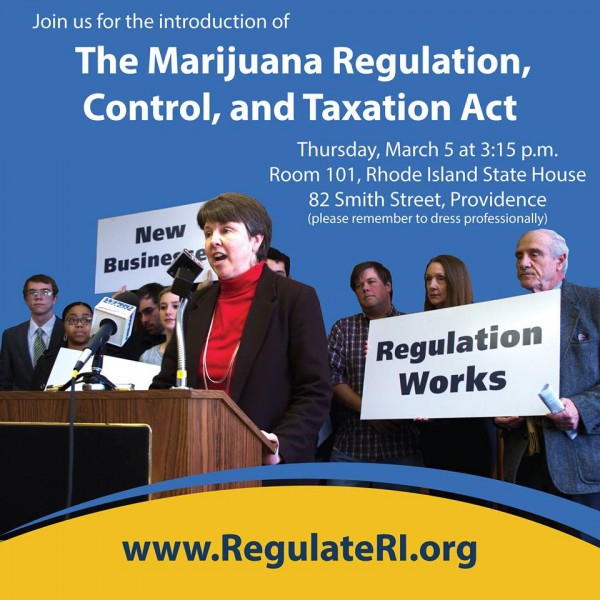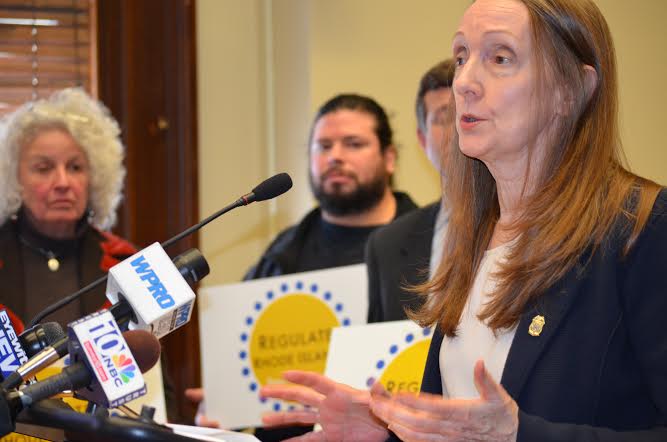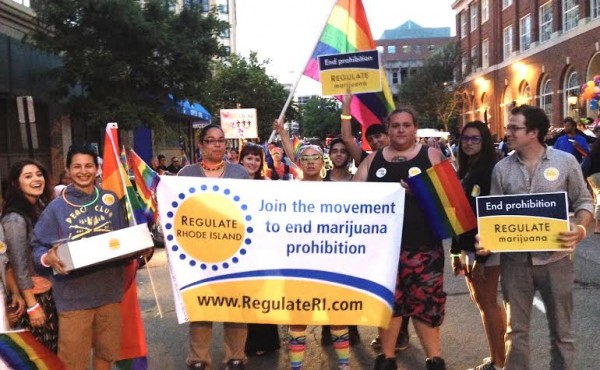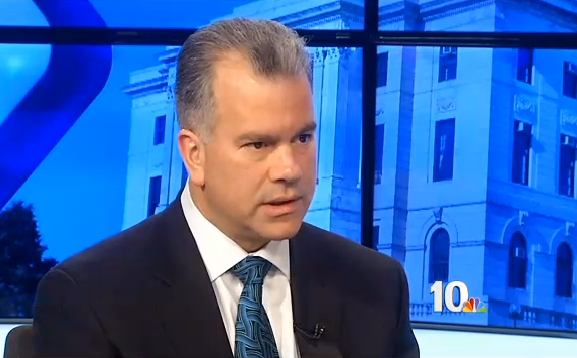 The federal government might be comfortable equating marijuana to heroin, crack and meth, but Rhode Island isn’t. At least it wasn’t when Linc Chafee was our governor. The Drug Enforcement Administration’s recent headline-grabbing decision to keep cannabis as a Schedule 1 drug was the result of a request from the Chafee administration in 2011.
The federal government might be comfortable equating marijuana to heroin, crack and meth, but Rhode Island isn’t. At least it wasn’t when Linc Chafee was our governor. The Drug Enforcement Administration’s recent headline-grabbing decision to keep cannabis as a Schedule 1 drug was the result of a request from the Chafee administration in 2011.
In a July 19 , Chuck Rosenberg, the acting administrator of the DEA, wrote, “On November 30, 2011, your predecessors, The Honorable Lincoln D. Chafee and The Honorable Christine O. Gregoire, petitioned the Drug Enforcement Administration (DEA) to initiate rulemaking proceedings under the rescheduling provisions of the Controlled Substances Act (CSA),” . “Specifically, your predecessors petitioned the DEA to have marijuana and “related items” removed from Schedule I of the CSA and rescheduled as medical cannabis in Schedule II.”
The DEA, it should be noted, disagreed, writing to Raimondo, “Based on the HHS evaluation and all other relevant data, the DEA has concluded that there is no substantial evidence that marijuana should be removed from Schedule I.” It cited three main reasons: “Marijuana has a high potential for abuse. Marijuana has no currently accepted medical use in treatment in the United States. Marijuana lacks accepted safety for use under medical supervision.” An editorial in today’s New York Times proves false each of those three reasons. The DEA was also responding to a request from the governor of Washington and a citizen of New Mexico.
While governor of Rhode Island, Chafee signed legislation to decriminalize less than an ounce of marijuana. But he declined to push Rhode Island to become the first state on the East Coast to tax and regulate marijuana. As a presidential candidate earlier this year, there was some reason to believe Chafee was considering campaigning as a pro-pot candidate after he said his position on full federal legalization would “evolve during the campaign.”
Governor Raimondo has taken a similar tack on taxing and legalizing marijuana as Chafee did during his tenure. “I could see Rhode Island eventually getting there, but I’m not going to rush,” she said in March. On medical marijuana, she pushed legislation that added a per-plant tax to patients who don’t grow their own.
According to a spokeswoman for Raimondo, the governor doesn’t plan to pursue the matter with the DEA any further. “This petition was submitted during the prior administration, so the governor does not plan to respond to the letter,” said Marie Aberger, who did not respond to a question asking if Raimondo thinks marijuana should be considered a Schedule 1 drug.
Rhode Island has the highest per capita marijuana users in the nation and a recent poll found 55 percent of Rhode Islanders favor legalization. A different poll found 53 percent of Americans favor legalization.


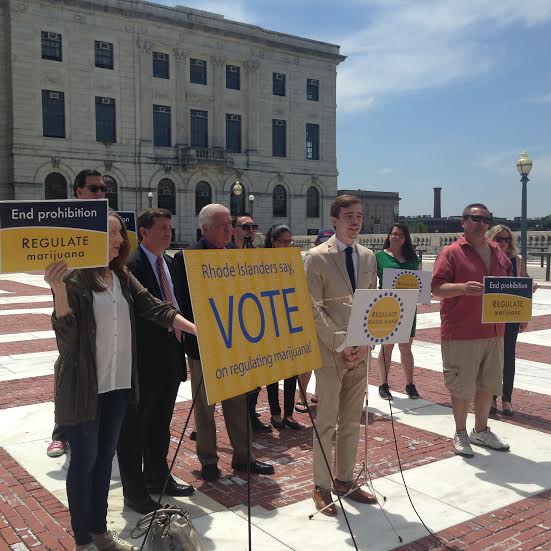
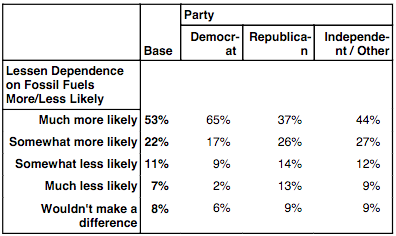

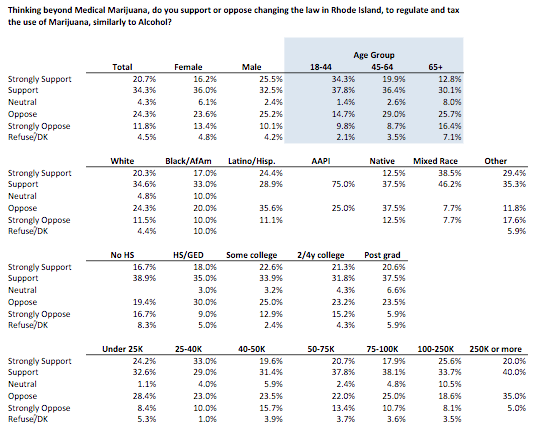


 Some of the state’s most prominent millennial-based civic engagement organizations are praising state Senate leaders for supporting legislation that would end marijuana prohibition in Rhode Island and replace it with a system in which marijuana is regulated and taxed similarly to alcohol.
Some of the state’s most prominent millennial-based civic engagement organizations are praising state Senate leaders for supporting legislation that would end marijuana prohibition in Rhode Island and replace it with a system in which marijuana is regulated and taxed similarly to alcohol.

 Tomorrow a bill to tax and regulate marijuana will be introduced in the Rhode Island House. In the meantime, says Jared Moffat, Director of Regulate Rhode Island, the following press release from the
Tomorrow a bill to tax and regulate marijuana will be introduced in the Rhode Island House. In the meantime, says Jared Moffat, Director of Regulate Rhode Island, the following press release from the 








 Muslim, Christian, Hindu, Jew
Muslim, Christian, Hindu, Jew